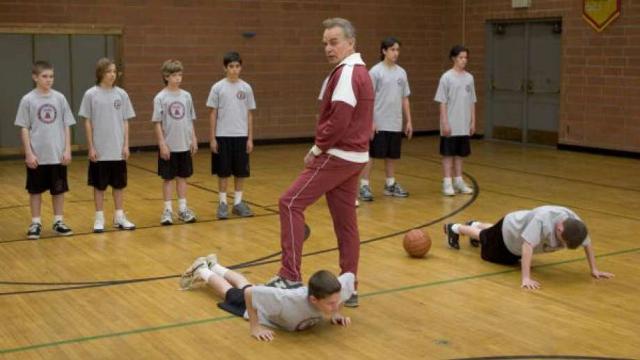P.E. class was a rough time for junior high Michelle. I hated gym class and did what I could to avoid it. I complained of “cramps,” begged my mum to write excuse notes and considered joining the marching band because it was the only way out. (Sadly, though, I didn’t know how to play an instrument.)
There was that day I was picked dead last for some team — I forget which. As the final trickle of names were called, I protested louder and louder in my head. (“What! Aw, come on, I’m at least better than her.”) And then there was that game of dodgeball when I successfully hid from the ball for a good 15 minutes. I was pretty proud of my evasion skills, until I realised I was the last kid on my side standing, the lone target.
Do you know how terrifying it is to be trapped inside a rectangle with a dozen pairs of eyes peering at you? A couple of throws later and I was sitting in the nurse’s office with bloody knees, wiping away tears.
It was just one period of the school day. I excelled in other subjects and things turned out fine. But did they really? A New York Times piece has me questioning that. The story, “How You Felt About Gym Class May Impact Your Exercise Habits Today,” highlights a study by a group of scientists at Iowa State University in Ames who wondered if our feelings about physical activity in adulthood may have roots in gym class, where many of us were introduced to formal exercise for the first time.
They had people rate their memories of P.E. and how they feel about exercise now. While reading the findings, published in the Translational Journal of the American College of Sports Medicine, my entire fitness history flashed before my eyes. From the Times:
The most consistent associations were between unpleasant memories of P.E. classes and lingering resistance to exercise years later, the researchers found. People who had not enjoyed gym class as children tended to report that they did not expect to like exercise now and did not plan to exercise in the coming days.
People who had found pleasure in gym class, on the other hand, were more likely to report that they expected exercise to be enjoyable and that they were active on weekends.
Times commenters recounted their own vivid memories of gym class — the locker room embarrassment (“I’m 64 years old and still have the occasional nightmare about changing into those gym outfits in high school,” one person wrote), the dreaded Presidential Physical Fitness Test, the overemphasis on competition. While many of those who loathed the experience noted that they eventually found types of physical activity that they enjoy, their views and habits around exercise were permanently impacted. I can relate. These days, I’m happy to get out and move — I hike a bit, swim a bit and do Pilates because I’d otherwise be an achy mess — but I’ve long declared athleticism as “not my thing.”
I’m starting to question this attitude now that I’m raising a five-year-old daughter who’s just discovering all the amazing things her body can do.
It’s important for parents and educators to understand how the messages kids receive about exercise can have lasting effects, and change our structures and words accordingly. P.E., as I’ve learned, has improved over the years.
For one, many schools have gotten rid of dodgeball — the Society of Health and Physical Educators states that it’s not an appropriate activity for the K-12 school setting as it gives students “licence to exhibit aggressive behaviour” (no kidding).
And teachers are now getting kids moving through games and activities that seem universally fun. (You haven’t lived until you’ve seen the fourth graders at Indianapolis’s Lowell Elementary School playing extreme rock-paper-scissors .) Still, a lot of old gym class traditions remain. Here are a few things we can do to make kids’ introduction to exercise a healthier one:
-
De-throne standard team sports. Don’t get me wrong, team sports are great for those who love team sports. But there should be other fitness options, too. Yoga, jogging, ultimate frisbee, interpretive dance, even gardening—remember, the goal is to help kids develop a lifelong interest in exercise, not to win a college scholarship.
-
Teach them that different people are good at different things. Explain that they may either have slow twitch muscle fibres or fast-twitch muscle fibres, making their bodies better suited for certain activities.
-
Let them make up their own games. A study led by Billy Strean, a professor at the University of Alberta, found that kids had better experiences from minimally organised games such as street hockey, compared to more organised activities. Strean suggests that adults allow children to explore activities on their own, with minimal rules and no scorekeeping.
I wonder if things would have been different for us gym-class haters had we known what we know now — that fitness doesn’t need to be a competitive pursuit. What if those daily 50 minutes were instead used to make us more comfortable in our own bodies? What messages would we be telling ourselves and passing on?

Comments
2 responses to “How To Help Kids Who Hate Gym Class ”
Its hard to like PE when the teacher bullies you.
You had me at “overemphasis on competition”. PE teachers were always on the lookout for that star, in team sports, track & field, etc. and god help you if you weren’t good enough.
Hated sport then, still hate it today as a result.